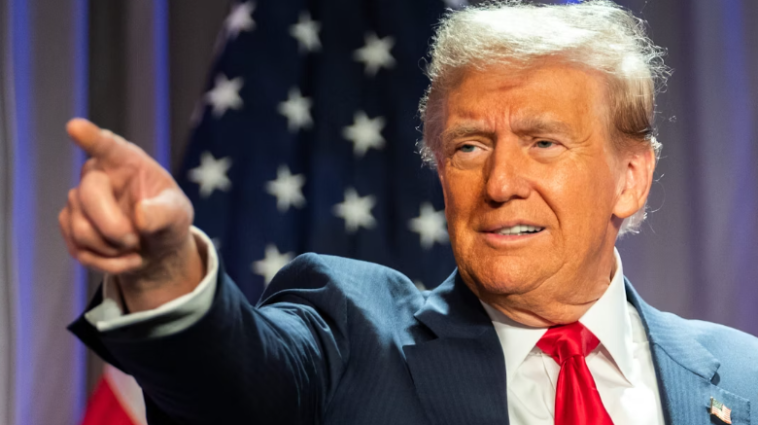President-elect Donald Trump is reportedly evaluating potential military options to prevent Iran from advancing its nuclear weapons program, according to sources familiar with the matter. The deliberations come amid heightened concerns about Iran’s nuclear capabilities and its defiance of international agreements.
Increasing Tensions
Reports indicate that Trump is weighing targeted military strikes as part of a broader strategy to curb Iran’s nuclear ambitions. These discussions are said to involve key members of his national security team, who are analyzing the potential risks and benefits of such action.
Iran has been accused of accelerating its uranium enrichment activities and violating the terms of the 2015 Joint Comprehensive Plan of Action (JCPOA), which the United States withdrew from during Trump’s first term. The Islamic Republic has consistently denied seeking nuclear weapons, claiming its program is for peaceful purposes, but intelligence reports have cast doubt on those assertions.
Trump’s Position
Trump has long been a vocal critic of Iran’s nuclear ambitions, frequently emphasizing the threat they pose to regional and global security. In his first term, Trump imposed sweeping sanctions on Iran, targeting its economy and key sectors to pressure Tehran into compliance.
If military action is pursued, it would mark a significant escalation in U.S.-Iran relations, which have been fraught with tension since the 2020 killing of Iranian General Qassem Soleimani in a U.S. airstrike ordered by Trump.
Military Options on the Table
Sources suggest that the military options being considered are focused on precision strikes targeting key nuclear facilities. This strategy aims to minimize collateral damage while sending a strong message to Iran and other adversaries in the region.
Analysts warn, however, that such action could provoke retaliation from Iran and its proxies, including attacks on U.S. forces stationed in the Middle East or strikes against allies such as Israel and Saudi Arabia.
Diplomatic Challenges
The potential for military action also raises questions about the role of diplomacy in resolving the nuclear issue. While the Biden administration attempted to revive the JCPOA during its tenure, those efforts largely faltered, leaving the matter unresolved. Trump’s team has indicated that it is committed to a more aggressive approach, arguing that diplomacy alone has failed to deter Iran’s nuclear advancements.
Regional Reactions
Regional powers such as Israel and Saudi Arabia have expressed support for tougher measures against Iran. Israeli Prime Minister Benjamin Netanyahu has called Iran’s nuclear program a “red line” and has welcomed Trump’s firm stance.
At the same time, European allies and other stakeholders may raise concerns about the broader implications of military action, including its potential to destabilize the region further.
Looking Forward
As Trump prepares to assume office in January, the question of how to address Iran’s nuclear program remains a critical foreign policy challenge. Whether the administration opts for military action, intensified sanctions, or a combination of both will likely shape the trajectory of U.S.-Iran relations in the years to come.


